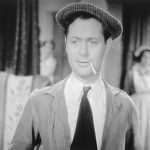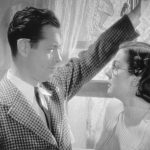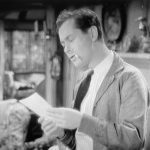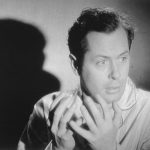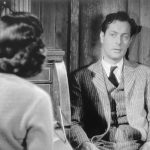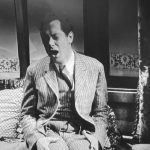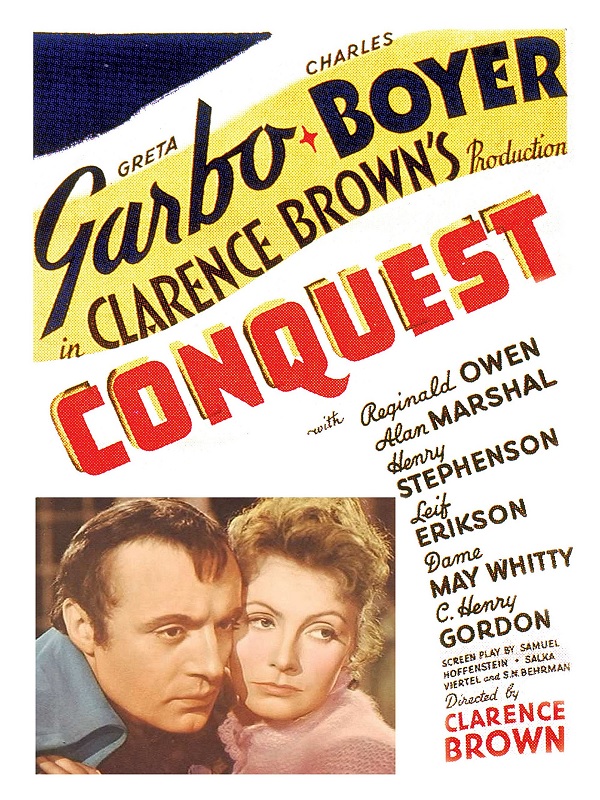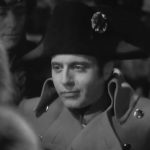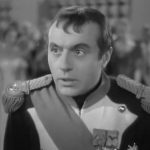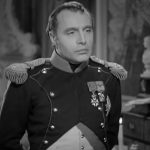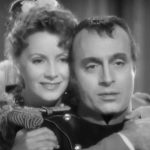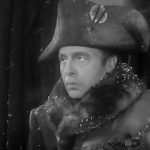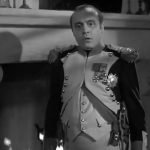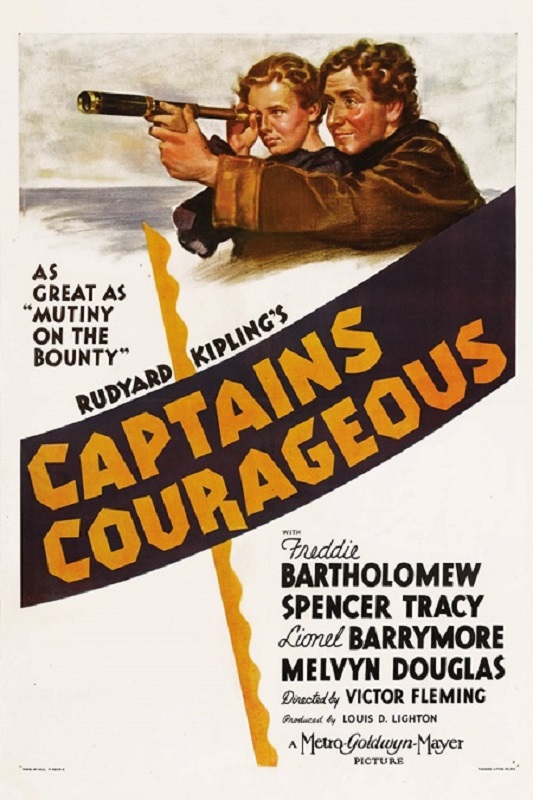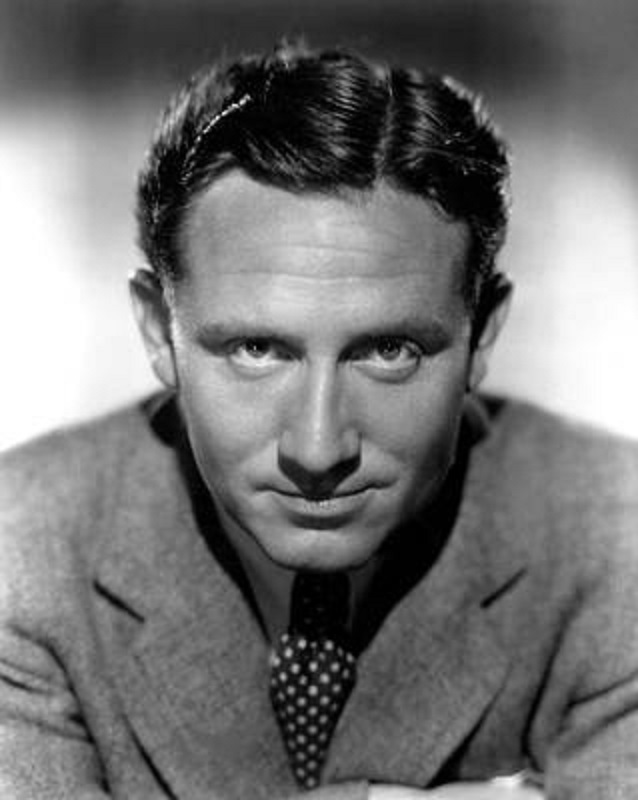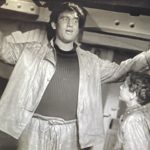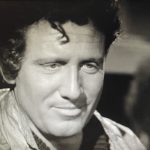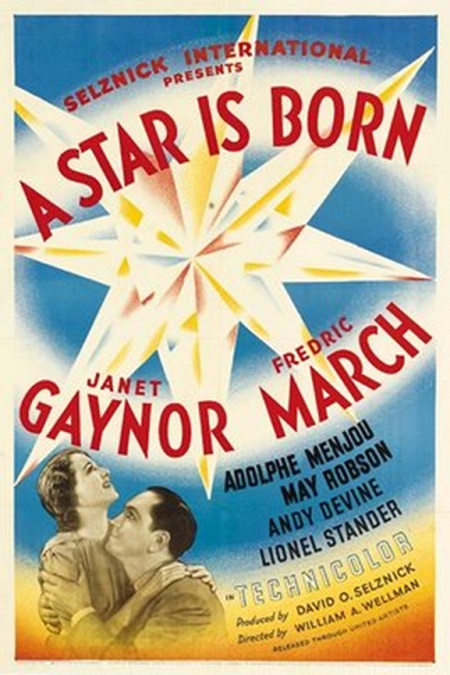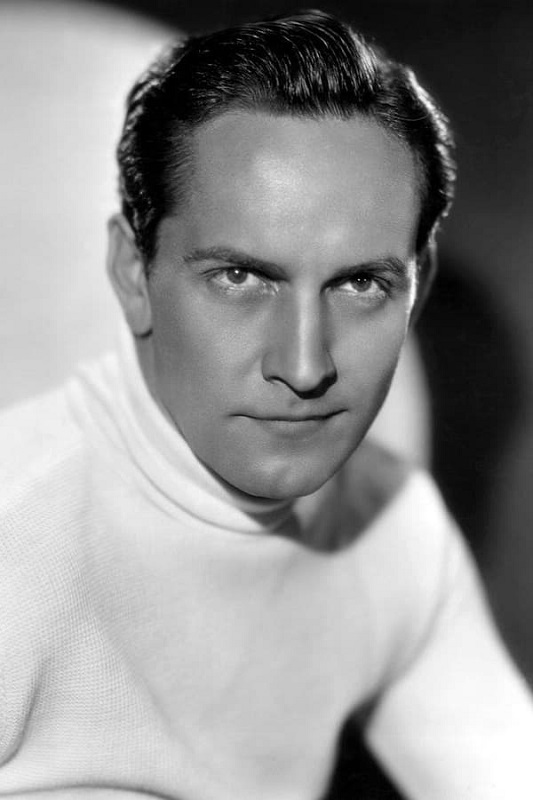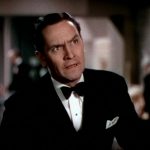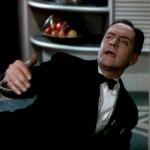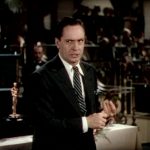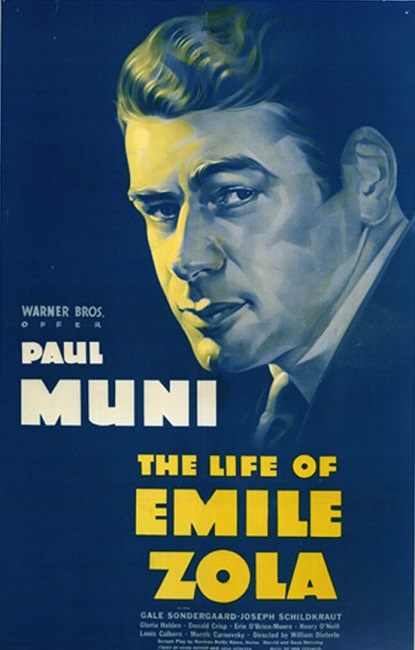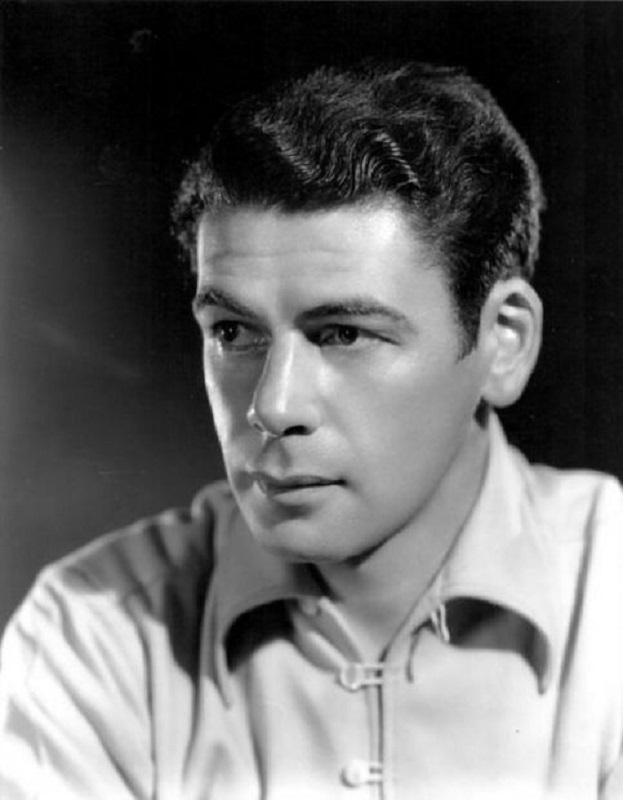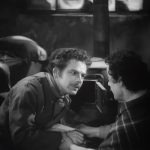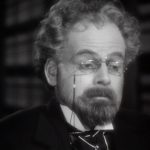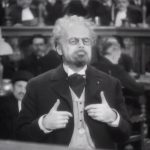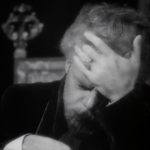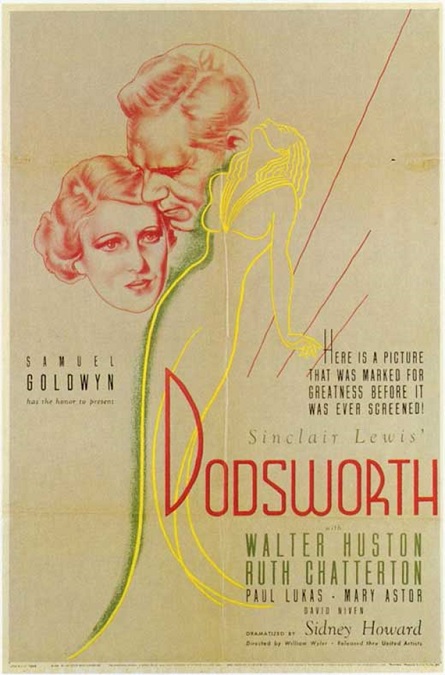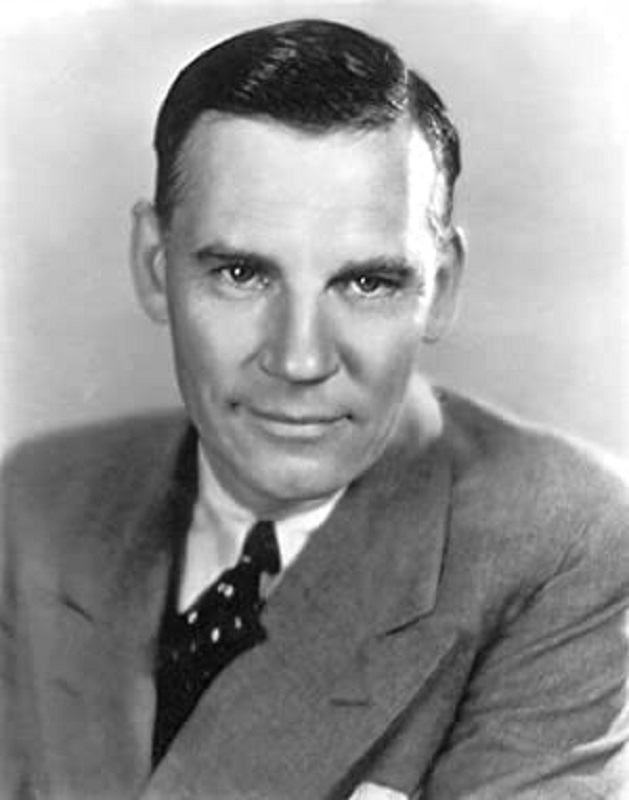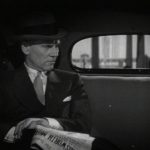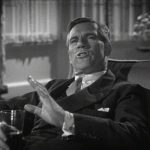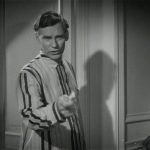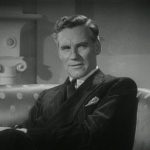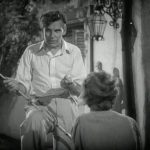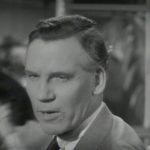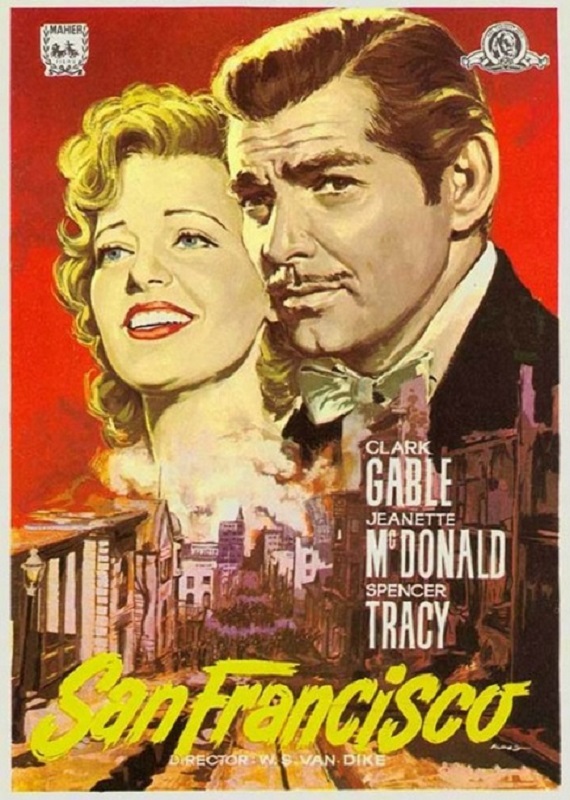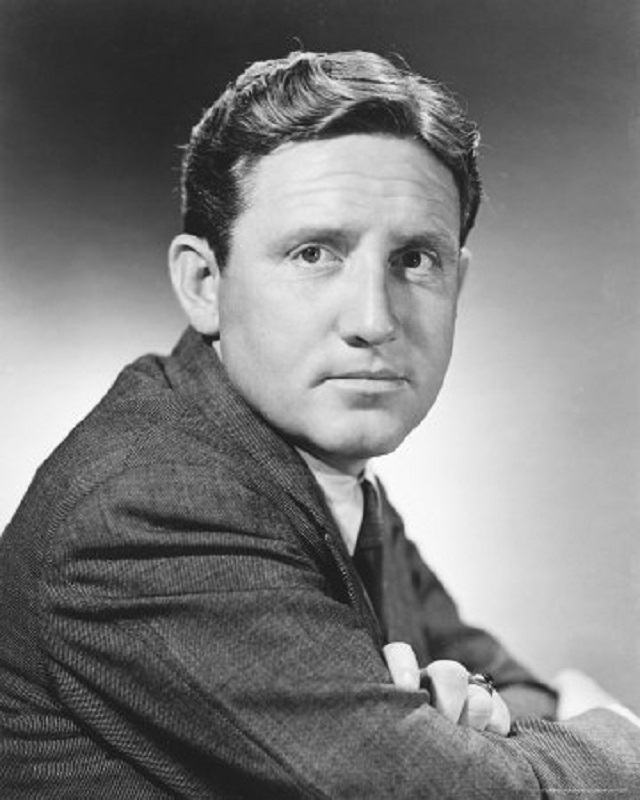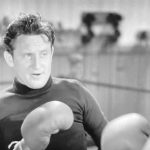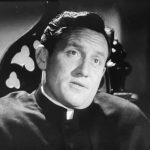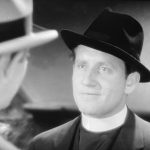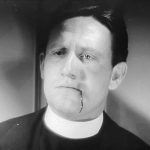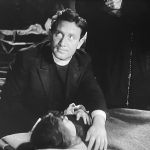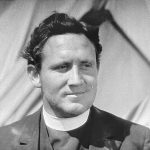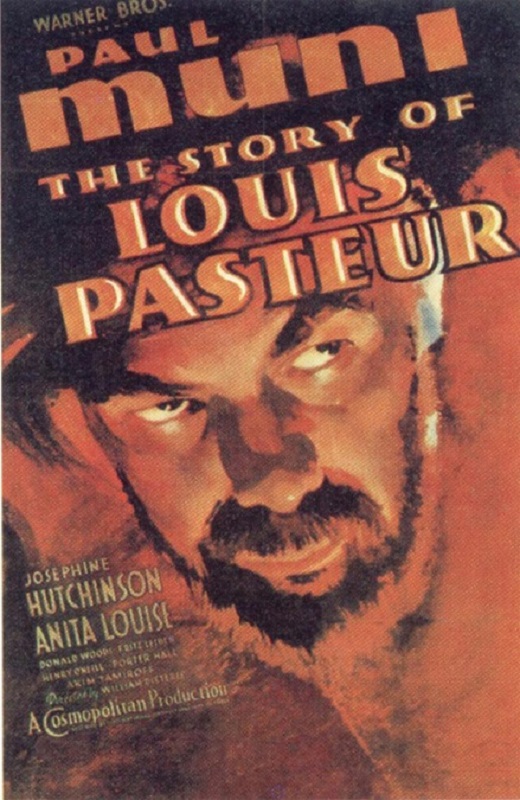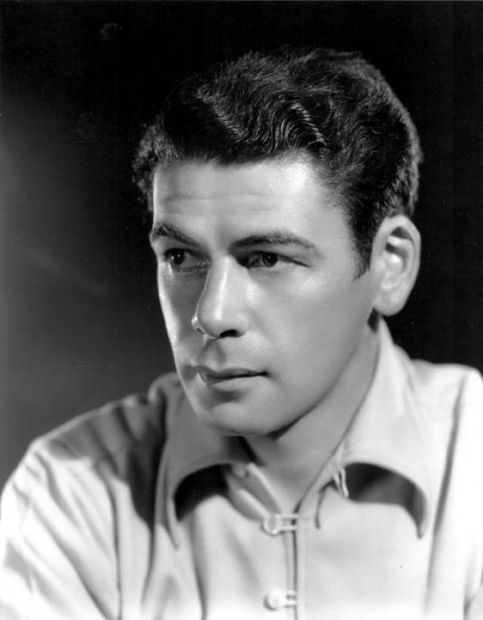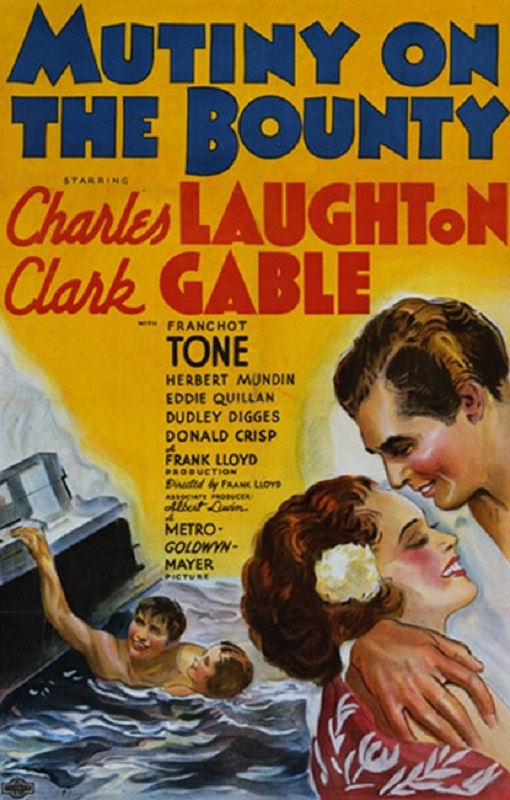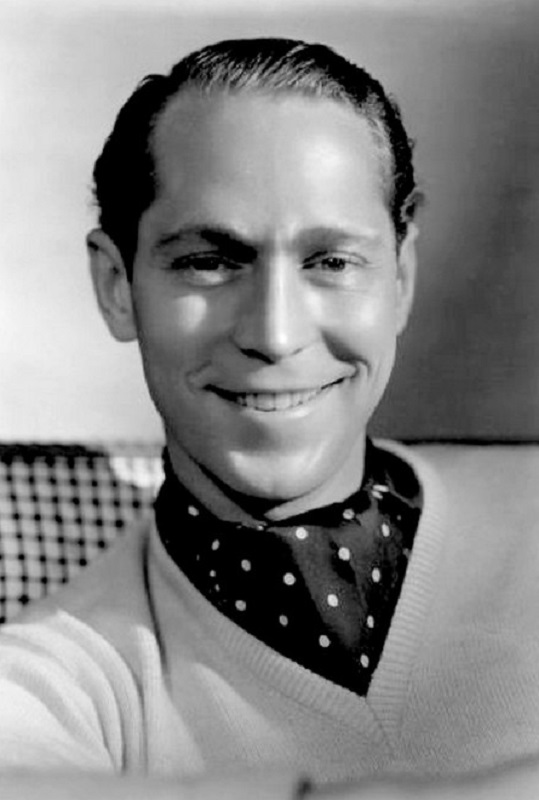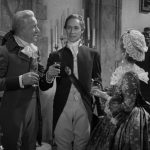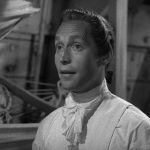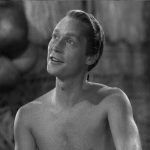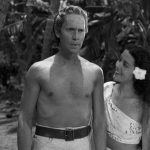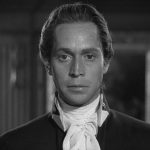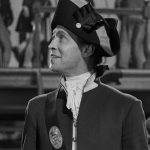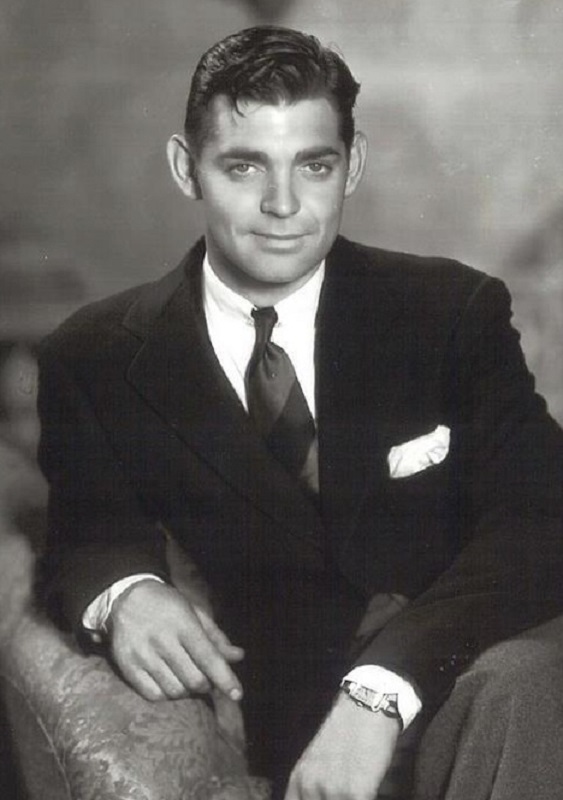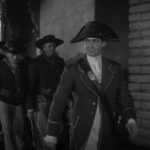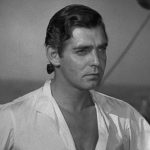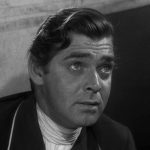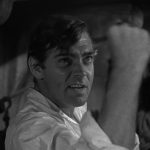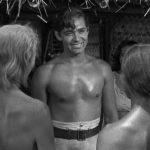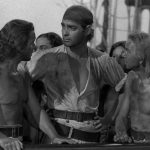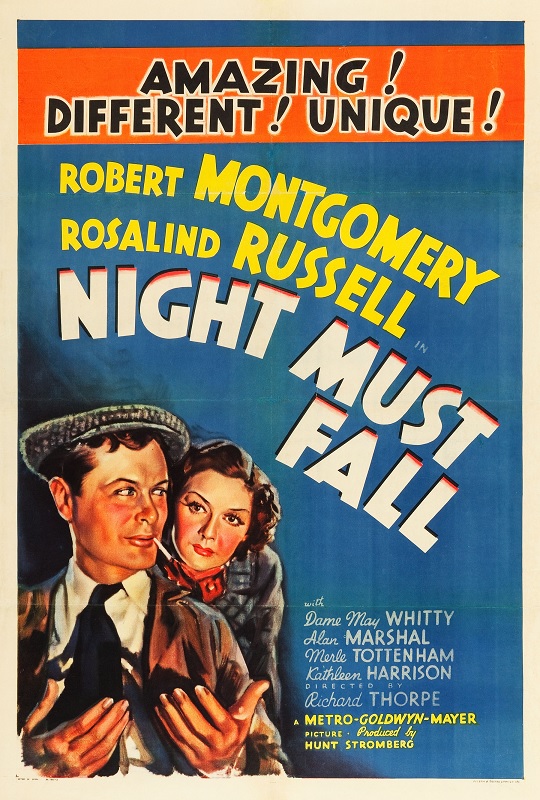
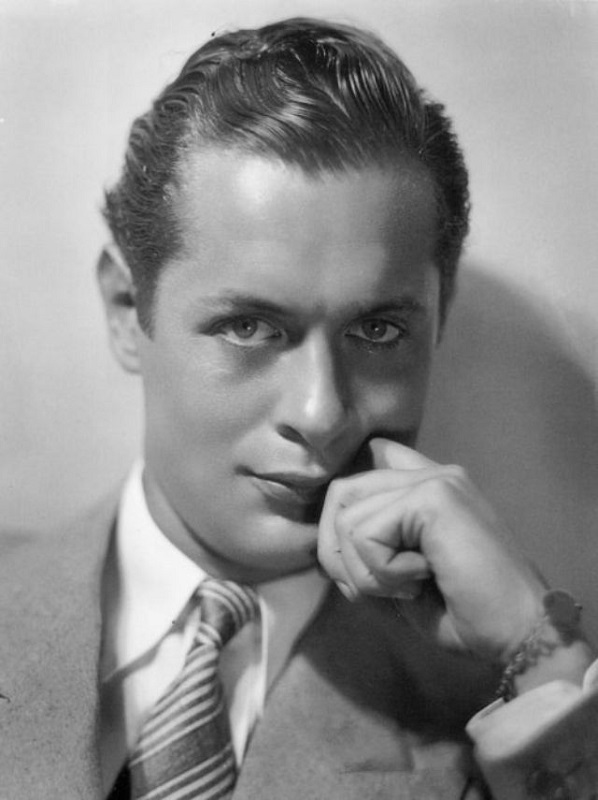

1937 – Robert Montgomery
Night Must Fall
Robert Montgomery deserved his nomination, yet, at the same time, I’m glad he didn’t win. He was good, but there were things about his performance that I didn’t like. He seemed to be trying too hard to be dramatic. The result is that there were moments in which his acting seemed too over-the-top. He needed a little more subtlety in his portrayal of the bad guy. I’ll explain.
First, I think the plot would have been better served if we hadn’t known, from the first moment Danny was on the screen, that he was the killer. I couldn’t tell if this was the fault of the actor, the director, or the script, but I suspect it was a combination of all three. It was immediately clear that he was the guilty party, and I’m not sure if I was supposed to know that or not. I think there could have been more suspense, more drama when he interacted with the other characters, and more conflict if his guilt was in question, at least for a little while. Second, in order to display the character’s nervous and guilty mannerisms, his acting resembled the style of acting that was necessary in the silent film era. His facial expressions and movements were sometimes too exaggerated. Not all the time, mind you, but often enough that it caught my attention.
But there were also some things that I really liked about his performance. For example, he did a good job of consistently using an Irish accent. It sounded believable, and it never wavered, so good job on that. Another thing was that he had the perfect look for the character. There was both an innocence and an enthusiasm about his handsome face that was necessary for the role. In fact, his look went a long way to cover up some of the problems with his acting.
In other words, despite his over-the-top performance, he was still captivating to watch on the screen. Yes, we knew he was the killer, but with a face so innocent, I was constantly wondering why. Unfortunately the answer was never really given. Apparently, Danny was just a killer without a solid motive. I mean the little conversation about his childhood might have explained his murderous tendencies, but we never actually learned why he killed the first lady in the first place. Oh Well.
